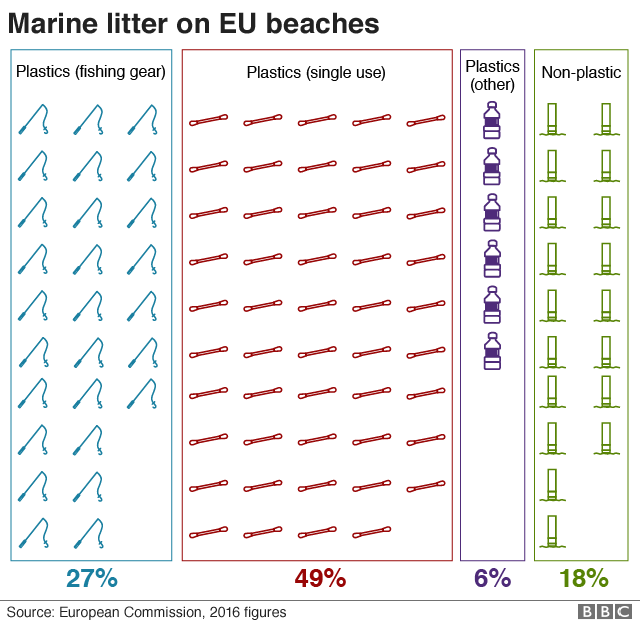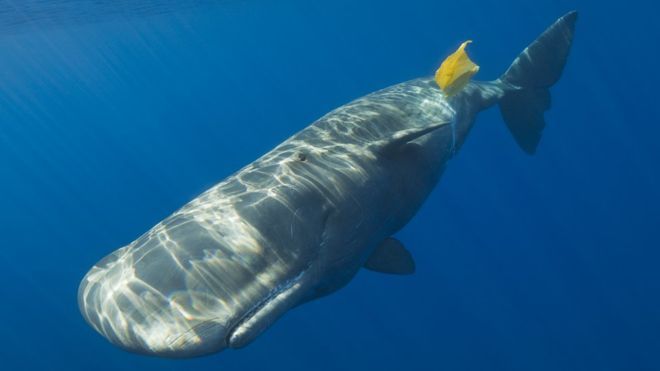The European Parliament has voted for a complete ban on a range of single-use plastics across the union in a bid to stop pollution of the oceans.
MEPs backed a ban on plastic cutlery and plates, cotton buds, straws, drink stirrers and balloon sticks.
The proposal also calls for a reduction in single-use plastic for food and drink containers like plastic cups.
One MEP said, if no action was taken, “by 2050 there will be more plastic than fish in the oceans”.
The European Commission proposed a ban in May, following a surge in public support attributed to documentaries such as David Attenborough’s BBC Blue Planet series.
The measure still has to clear some procedural hurdles, but is expected to go through. The EU hopes it will go into effect across the bloc by 2021.
After the Parliament vote was backed by 571-53, the MEP responsible for the bill, Frédérique Ries, said it was “a victory for our oceans, for the environment and for future generations.”
Several countries are already considering proposals to target disposable plastic products – including the UK, which is leaving the EU.
How big is the problem?
The EU’s research on the topic says about 150,000 tonnes of plastic are tossed into European waters every year.
That is only a small contributor to the global problem, with an estimated eight million tonnes of plastic entering the world’s oceans annually. And once there, plastic can travel great distances on ocean currents.

Those plastics have a huge effect on marine life.
Fish and large aquatic mammals can be killed by the pollution. Whales can eat plastic bags, making it impossible for them to eat real food which can eventually lead to death.
When plastic debris breaks down from wear and tear, it does not decompose the way other products like wood do – but instead breaks down into smaller and smaller pieces, becoming “microplastic”.
These tiny fragments often end up in fish and can then be passed on to humans.
Large volumes of plastic waste wash up on beaches, where they can be eaten by sea birds and other animals and kill them.
Source: BBC



